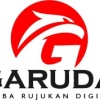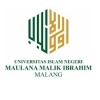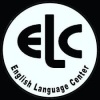ANNOTATED TRANSLATION OF CURRICULUM TERMINOLOGY IN INDONESIAN ACADEMIC TRANSCRIPT
Abstract
Full Text:
PDFReferences
Akhiroh, N.S. & Fatimah, F. (2017). Penerjemahan Dokumen Resmi dan Internasionalisasi Pendidikan Tinggi. Forum Ilmu Sosial. 44 (2). pp. 94-106.
Azmi, I.F. (2012). Students’ Difficulties in English-Indonesian Translation of Specialized Terminologies. The Case of the Fifth Semester Students of the English Department of UNNES in the Academic Year of 2011-2012. Unpublished Thesis: Universitas Negeri Semarang.
Baker, M. (2011). In Other Words: A Coursebook of Translation (2nd Edition). London: Routledge.
Catford, J.C. (1978). A Linguistic Theory of Translation. London: Oxford University Press
Dewi, H.D. & Wijaya H. (2020). Dasar-Dasar Penerjemhan Umum. Bandung: Mandu Makmur Tanjung Lestari.
Dimitrova, B.E & Tiselius. (2014), MonTI Special Issue – Minding Translation. 2014. pp. 177-200. ISSN 1889-4178E.
Larson, M. (1998). Meaning-Based Translation: A Guide to Cross-Language Equivalence. USA: University Press of America.
Murici, M. (2016). Issues in Translating Legal Texts. International Journal of English Language and Translation. 4(3). pp. 69-74. Retrieved from www.eltsjournal.org.
Munday, J. (2001). Introducing Translation Studies: Theories and Applications. London& New York: Routledge
Newmark, P. (1988). A Textbook of Translation. Hertfordshire: Prentice Hall.
Nida, E.A. & Taber, C.R. (1982). The Theory and Practice Translation. Londong: E.J. Brill
Pavel, S & Nolet, D. (2001). Handbook of Terminology. Adapted into English by Christine Leonhardt. Hull. Québec: Minister of Public Works and Government Services Canada, Translation Bureau.
Postolena, S. (2016). Translating in a Specialized Context. Bulletin of the Polytechnic Institute of Iasi. LXII (LXVI). pp. 51-66. Retrieved from (PDF) TRANSLATING IN A SPECIALIZED CONTEXT: CHALLENGES AND RISKS (researchgate.net). on April 25, 2021.
Pusat Bahasa. (2009). Kamus Besar Bahasa Indonesia Edisi Keempat. Jakarta: Balai Pustaka
Sholihin. (2017). An Annotated Translation of “Techniques and Principles in Language Teaching: Teaching Techniques in English as a Second Language. Jurnal Pendidikan Bahasa. 7(2). pp.57-64. ISSN: 2088-0316.
Thelen, M. (2015). The Interaction between Terminology and Translation Or Where Terminology and Translation Meet. Trans-kom. 8(2). pp.347-381. ISSN 1867-4844.
Utami & Sumani. (2014). Word-Level Equivalence of Indonesia-English Translation Abbreviation in the Jakarta Post. English Teaching Journal. 2(2). pp.16-23.
William, J & Chestermen, A. (2002). The Map: A Beginner’s Guide to Doing Research in Translation Studies. Manchester: St. Jerome Publishing.
Xue, H & Desmet, P. (2019). Research Introspection for Experience Driven Design Research. Design Studies. 63. pp. 37-64. Retrieved from https://www.sciencedirect.com/science/article/pii /S0142694X19300158 on April 25, 2021.
DOI: https://doi.org/10.18860/jeasp.v4i2.14429
Refbacks
- There are currently no refbacks.

This work is licensed under a Creative Commons Attribution-ShareAlike 4.0 International License.







Editorial Office:
Pusat Pengembangan Bahasa
Program Khusus Pengembangan Bahasa Inggris (PKPBI)
Universitas Islam Negeri Maulana Malik Ibrahim Malang
Gedung C lantai 1
Jl. Gajayana No 50 Kota Malang, Jawa Timur, Indonesia
Kode Pos 65144, Telp/Fax : (0341) 570872
Email: jeasp@uin-malang.ac.id
JEASP : Journal of English for Academic and Specific Purposes is licensed under a Creative Commons Attribution-ShareAlike 4.0 International











